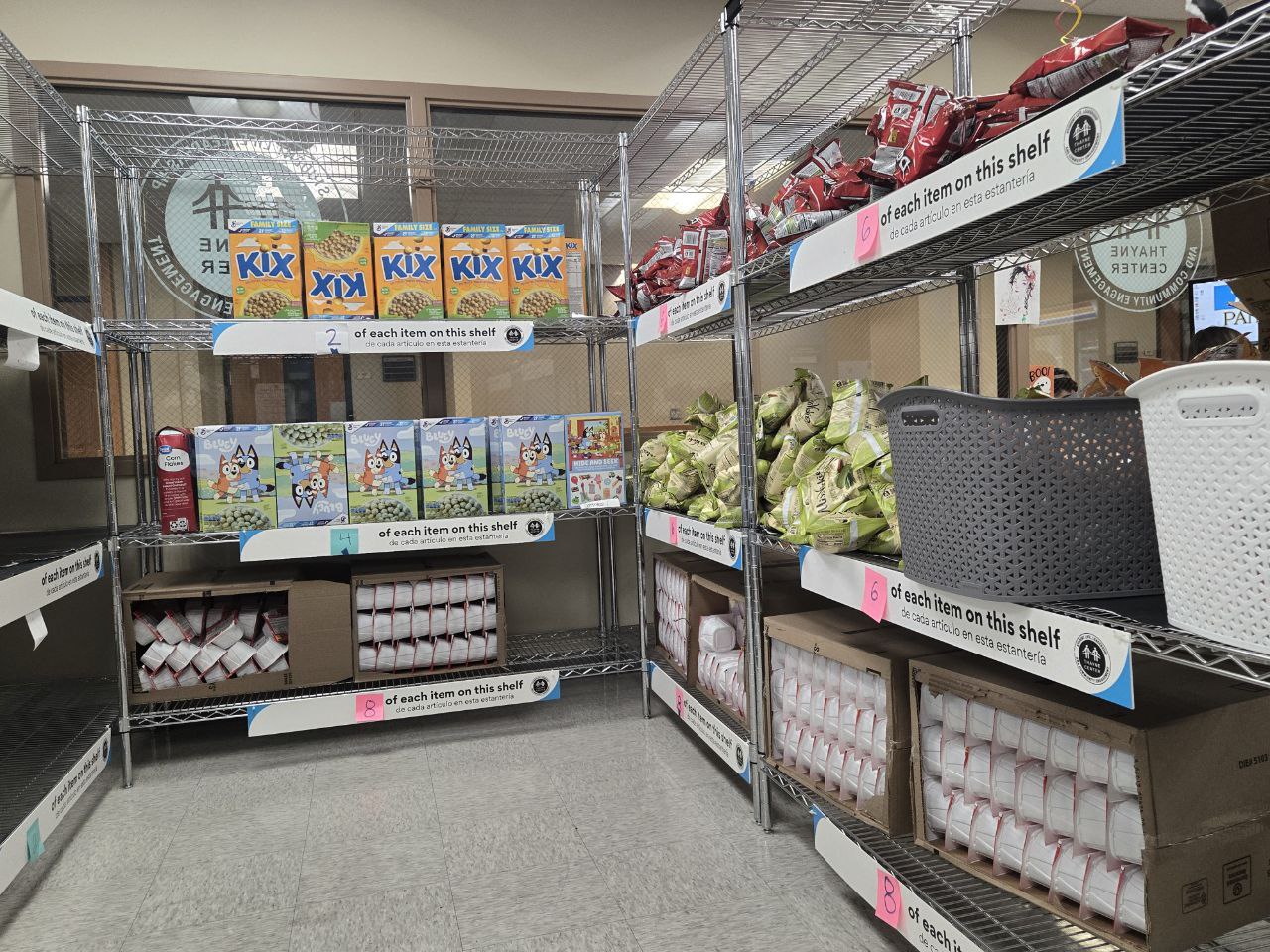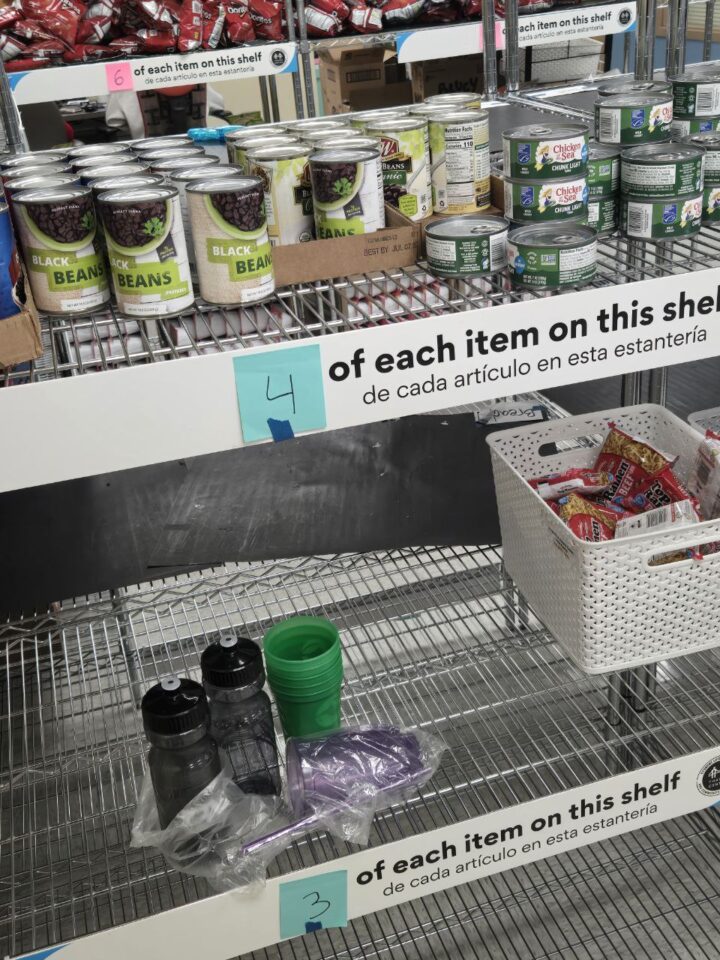
In Utah, over 480,000 people — including 161,000 children — are facing hunger, according to Feeding America.
In the face of food shortages, Salt Lake Community College’s Bruin Pantry steps in to support vulnerable students, faculty and their families. The pantry works closely with the Utah Food Bank to help ensure that the SLCC community has support when it comes to putting food on the table.
“Each time you enter the Bruin Pantry, one of our peer leaders will ask your household size,” said Bruin Pantry Network Manager Lauren Hunt. “It’s assumed that each person brings some food home for their families or housemates.”
Bringing food home benefits the recipients and is also a valuable source of data for the pantry when it comes to gathering user information.
“We use that data to show the Utah Food Bank how great of an impact their food donations have on our SLCC community,” said Hunt.
In partnership with the Utah Food Bank, Hunt works with local grocery stores and gas stations to stock the shelves of the Bruin Pantry, saving close-to-expiring produce and prepared meals from going to waste. According to a report by the Utah Food Bank, the program provided 22.5 million pounds of food for Utahns facing hunger in 2024.
The SLCC community gardens — recently renamed the “Student Gardens” — contribute to the Bruin Pantry as well. Located at the Taylorsville Redwood, South City and Jordan campuses, students, clubs and departments maintain garden plots and grow fresh produce.
Individuals can choose to bring their vegetables home or to donate them to the pantry, according to Bruin Pantry Specialist Mike Lameman.
“The community gardens coordinator has one or two plots that she grows herself to educate other people,” Lameman said. “Anything that she grows she typically brings [to the Bruin Pantry].”

Despite current support and partnerships, the Bruin Pantry still needs help. Due to rising costs and supply issues, many items continue to be in high demand.
Along with unopened, unexpired food, the Bruin Pantry looks for donations of toothpaste, shampoo, conditioner, soap, laundry detergent and menstrual hygiene products to help individuals stay clean and nourished during times of uncertainty.
“Even though we’re a food pantry, we still get donations of hygiene items,” Lameman said. “We used to buy soap and, like, laundry detergent, but with the higher prices of everything [that has been cut back].”
Another way to get involved with the Bruin Pantry is by utilizing the pantry.
“Many students may feel like they don’t ‘qualify’ or that they’d rather leave the food for someone else who ‘needs it more’,” Hunt said. “But that mindset actually stigmatizes the use of food assistance programs.”
Hunt added that the pantry has seen steady growth in recent years, with an average 30% increase in usership each year since 2020. As the pantry continues to meet growing demand, she and her team hope more members of the SLCC community will see the Bruin Pantry as a valuable resource usable by all during times of hardship.
“A lot of people would rather go without [utilizing the pantry] than to admit they need help,” said Hunt. “By seeing their peers or trusted faculty or staff utilizing this resource, it makes them feel more comfortable in receiving assistance.”
“We do not ask any patrons for their income. The only thing needed to access the pantry is your OneCard,” Hunt explained.
The Bruin Pantry is located at SLCC’s Taylorsville, South City, Jordan, West Valley and Herriman campuses. Hours of operation vary from semester to semester and from location.
For more information, visit the Thayne Center’s Bruin Pantries webpage.






